by Reem Alfahad and Muhammad Adeel
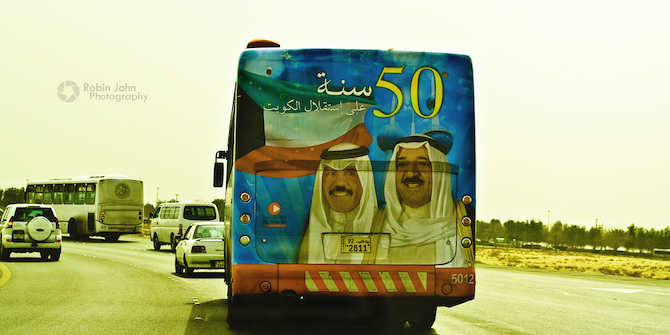
On the roads of Kuwait cars reign. Buses, pedestrians, and cyclists are akin to flies being swatted away to make way for the private vehicles. Despite efforts by social initiatives like Kuwait Commute to motivate citizens to trade in their cars for public transport, buses remain an afterthought for most Kuwaiti citizens and decision makers.
LSE Cities’ recently completed research project, Resource Urbanisms (2018), outlines the rapid urban expansion in Kuwait that turned the 1950s budding village into a complex, heavily congested city. With the advent of oil, Kuwait plunged forward into a future of modern villas and widespread highways. Highways became the main artery of the city that connected the centre to the large new suburbs. Since 1978, no new public transport has been developed. And though widely used by expats, the current system remains largely inefficient. The Resource Urbanisms Report shows how 99 percent of Kuwait’s population relies on private vehicles as a primary means of mobility. For non-Kuwaitis, that number is closer to 44 percent (as of 2018).
Kuwait diligently funds research on potential mass transit systems, often around the same time a new Master Plan is commissioned, but there is a recurring blind spot in these studies: what is preventing Kuwaitis from using public transportation in the current model? Are there social and cultural factors that play a role in their transport decisions?
With access as a principal focus, we wanted to understand the everyday advantages and disadvantages of the current bus system in Kuwait, as perceived by everyday people. Stakeholders often claim lack of access to public opinion, so through this research we talked directly with a wide range of public transport users and non-users to understand their specific concerns. We expand notions of ‘access’ from the availability of physical transport links to include ‘emotional’ and ‘cultural’ access to mobility.
This is part of the LSE Middle East Centre’s ongoing research project, Towards an Equitable Transport System in Kuwait, which aims to investigate the issues of transport equity in Kuwait from with social justice in mind through both quantitative and qualitative components. In this blog post, we outline the qualitative component to the research and our initial findings. In the next blog post, we focus on the gender specific concerns that came up in the research.
Focus groups discussions held in Kuwait to understand the social and cultural dimensions of transport mobility
The qualitative research consisted of 1 public discussion and 4 focus groups, with 74 participants in total. Two of the focus groups were a mix of Kuwaiti nationals and non-Kuwaitis, and the remaining two focus groups were separated into nationals only and non-nationals only. This was designed to create a more candid setting in which participants did not need to censor their experiences in front of their Kuwaiti or non-Kuwaiti counterparts, particularly given the usual socioeconomic, language and access differences. The public discussion took place with the collaboration of Inspirational Hangout and Kuwait Commute on 17 February 2019 and the focus groups were conducted in collaboration with KFAS in March 2019. In order to minimise barriers to discussion, and to incentivise participation, KFAS generously provided a free lunch to all the participants, and GoCity (from CityBusKwt) provided a promo-code that would allow the participants to take a cab to the discussion for free.
The participants were recruited through all possible means: social media campaigns, WhatsApp group blasts, fliers in local bus-pass stations, and word of mouth. There was an enthusiasm and palpable will for change among the participants. For some, it was a venue to unload transport frustrations, and for others, it was an opportunity to make barriers they face visible. The energy transcended the research with participants later inviting the researcher to hold similar discussions in local high schools, and in public universities.
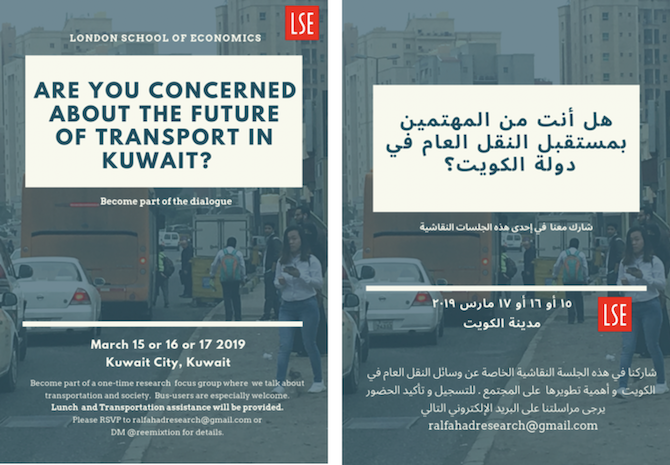
General Findings and First Impressions
The way you move around Kuwait is largely determined by your socioeconomic status and whether or not you hold Kuwaiti citizenship.
In our initial findings, we found that differences in accessibility could be broken down into four categories. Kuwaitis and non-Kuwaitis tend to live and work in different sectors, which is why this research chooses to maintain these categories in explaining the differences in access. The following sub-headings briefly describe the primary issues facing each individual category, though are described more thoroughly in the final paper and subsequent blog.
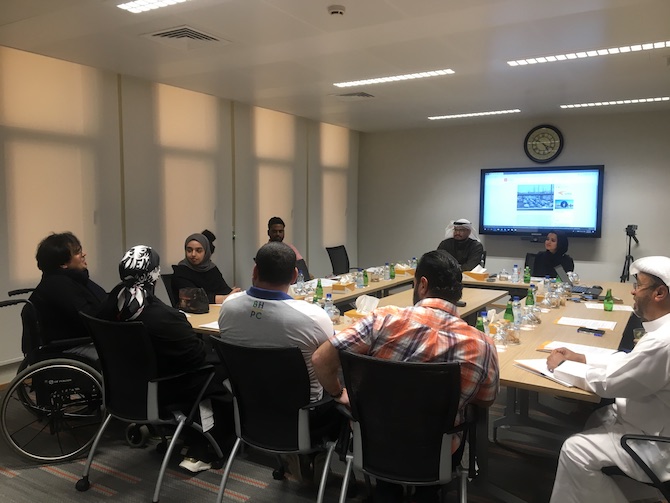
Low income, non-Kuwaiti
Likely Profession: domestic workers, construction workers, day-labourers
Transport experiences:
- For domestic workers who live with employers: There are no transport links in Kuwaiti neighbourhoods, and their minimal salary does not permit the use of taxis. They often do not receive a day off (depending on their employer), many describe feeling ‘stuck’ at their employer’s home.
- For construction workers/day labourers: They rely heavily on the public bus system, and cannot afford other options. They find that the bus system can be highly unreliable so they often resort to informal ‘grey’ buses, where you can negotiate the price and get dropped off through more direct routes. Many have alleged harassment from local undocumented youth on buses.
Middle Income, Non-Kuwaiti
Likely profession: Service industry (Retail, Food and Beverage, and so forth)
Transport Experiences:
- It is difficult for this group to receive driver’s licenses because to do so one is required to have 650 KD monthly salary, hold a University degree, and a be in a managerial position at their place of employment. They express frustration with the lack of wasta (a connection or ability to influence state employees), preventing access to basic services. They rely heavily on taxis and organised transport from their employers.
- Many express frustrations with harassment from (allegedly) stateless young men who enter public buses and intimidate foreigners, break the windows, and so forth. Many young Filipino or Indian workers do not feel entitled to seek retribution because there is an implicit hierarchy at play in which they feel ‘less’ than the Arabic residents and their status in the country is always precarious, as they sense that they are deemed easily replaceable.
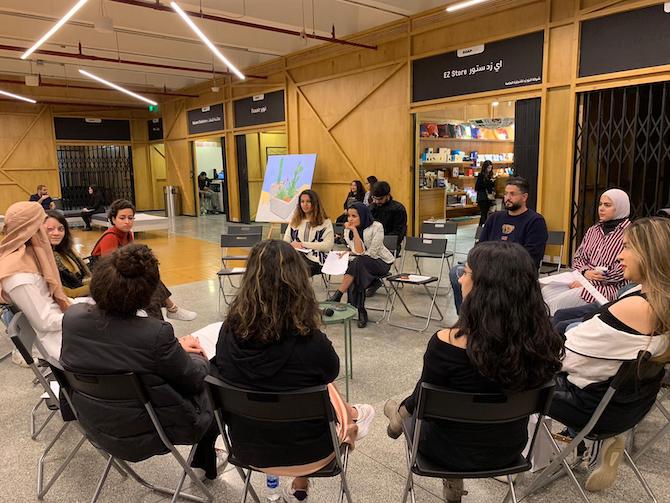
High Income, Non-Kuwaitis
Likely profession: White Collar Professional, Oil, education, with salaries over the 650 KD mark and holding a university degree.
Transportation experiences:
- They meet the requirements for a license, but sometimes are arbitrarily denied. They express frustration with the inaccessible bureaucracy that leans in favour of Kuwaitis.
- They rely on taxis, particularly through ride-sharing apps.
- This group associates public buses with inconvenience and low status. Also, they find it difficult to find route information from peers or online, because they are not connected to people who regularly use the buses.
Mixed Income, Kuwaitis
Likely Profession: White Collar, Private and Public sector
Transport experiences:
- They travel almost exclusively by private transport.
- They are far more concerned with safety on the road (speeding, accidents, etc.) than the possibility of using public transport.
- They recognise that law enforcement is quite permissive towards Kuwaitis when it comes to driving.
- Many young Kuwaitis are eager to use public transport but feel that the current infrastructure is inadequate and insufficient.
- Many associate driving, and cars, as a source of status and entertainment, opting to go for a drive with no destination as a form of entertainment.
- For older Kuwaiti participants (over 50), they remember riding buses regularly as kids, before the wealth of the country increased, but are now reluctant to encourage their kids to use public transport unless the current model evolves. Many refer to the more developed public transport systems of the UAE or Qatar as ideal improvements. It is crucial to them that the system ‘comes to them’, addressing their current mobility needs without requiring dramatic cultural change.
- There is a separation between perceived experience, and actual experience, since most Kuwaitis with strong opinions about buses have never actually rode one in Kuwait.
- Overall, despite an aversion towards the current bus system, there is an enthusiasm for public transport, especially because many Kuwaitis have no problem using public transport when they are abroad. This enthusiasm comes from frustration with a system that is currently rife with traffic, accidents, and insufficient parking.
Look out for the next blog post that discusses gender specifically in this ongoing research project on transport equity in Kuwait.



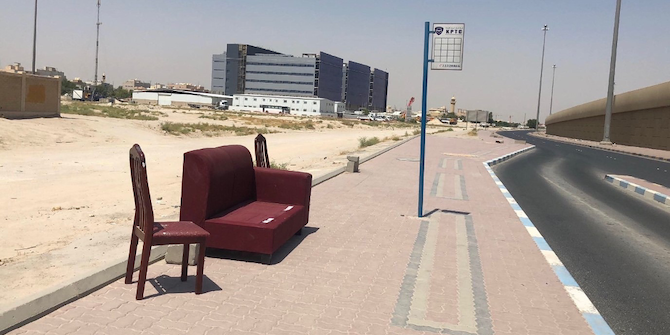


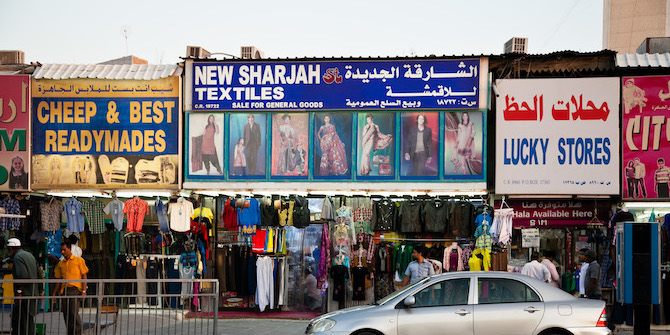
An excellent piece highlighting important research. Thorough processes, robust fieldwork, and insightful findings. I look forward the next post re gender, and generally, to more work from Reem and Dr. Adeel.